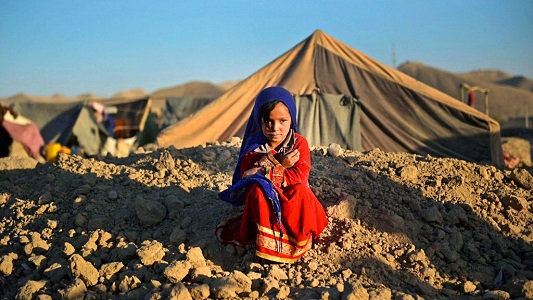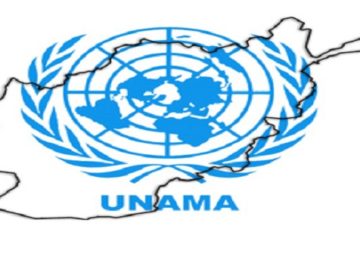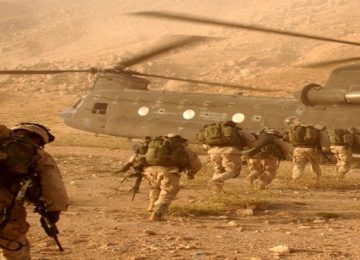November 18, 2021
According to Clausewitz, war is “the continuation of diplomacy by other means”. In Afghanistan today, we have the opposite: diplomacy as the continuation of war. After 20 years, the US and its allies acknowledged that their Afghan Project had failed, and they left. But it seems they can’t let go. Like a controlling, embittered divorcee, America seems determined to do everything to stop its ex from prospering, no matter the collateral damage.
Whether we like it or not — and I certainly don’t — the Taliban now preside over a country devastated by decades of conflict: its new government cannot rely on the structures in place, which have been crippled by the abrupt departure of so many educated and trained managers and professionals.
Public safety, always hazardous in the tumultuous days after a major transition, needs intense policing and patrolling. Isis remains a huge threat, while the new regime’s young Taliban foot soldiers — born in remote villages, raised on nothing but combat and now amazed to find themselves in the shining metropolis of Kabul — have to be closely monitored.
Meanwhile, the disruption to trade is causing massive inflation and price increases for basic goods. A long drought has led to a poor harvest. Covid is still rampant. Winter is coming and the poor — 72% of the population, according to the UN — will look to the Government to provide them with firewood and food.
But good news: Afghanistan has money! The country has $9 billion in financial assets, of which $7 billion are in US banks and $2 billion are deposited in Europe. This is because Afghan banks traditionally keep the bulk of their funds in foreign financial institutions, drawing on them monthly for ongoing liquidity. Then there is the aid money already set aside for Afghanistan. The World Bank administers a Trust Fund for Afghanistan Reconstruction, which was supposed to pay $800 million this year, while the IMF has around $400 million designated for Afghanistan.
There’s just one problem: on the orders of the US government, all this cash has been frozen.
And that’s not all. So much money has been ferried out of the country in recent years by corrupt officials that there is now a cash shortage. People can only withdraw a small portion of their savings. The country can’t print new bills to replace what was stolen, because the country’s currency is printed by a European company that also falls under US sanctions. It’s economic strangulation.
America likes to give names to its overseas efforts. The Afghan venture was called Operation Enduring Freedom until 2015, and Freedom’s Sentinel thereafter. What shall we call this new phase? Operation Enduring Anger, perhaps. That, after all, is what US military officers, and many in the policy community, are: very angry. It’s a blow for a superpower to have to acknowledge that it could not gain mastery over 90,000 unshaved, minimally equipped fighters, and wasted $2 trillion dollars in the process. It’s embarrassing.
But we should save our empathy for the Afghan people. Their country has been in unrelenting continuous war for more than 40 years. With 70% of its population under the age of 25, most people alive in Afghanistan have never experienced peace. We may not like their new government. But their last leaders were awful in a different way: more educated, yes, and savvier — but they used those attributes to pad their bank accounts in the UAE.
The Taliban government prior to that made women wear burqas and beat men if their beard was too short and executed adulterers in the sports stadium. Before that was a civil war and before that a proxy superpower conflict between the Soviet Union and the US. If the Taliban refrain from their previous behaviour – which so far they have largely been careful to do – and if they honour their promises to reopen girls schools, clamp down on terrorism and not persecute their former enemies, they could turn out to be Best in Show.
Granted, the return of the Taliban is not the solution the US had hoped for: to create a beautiful, free and democratic Afghanistan that would be rich on the basis of its mineral wealth. Yet that project stalled. The Taliban reappeared, won recruits, took territory, inch by inch, year by year. Until 2021, when, at long last, the US faced the facts. They pulled out their military and their diplomats and their contractors, closed the embassy and departed, taking with them nearly 200,000 local staff and supporters and accidental stowaways in a sloppy and casualty-riddled evacuation.
For punctuation, they launched one last faulty drone strike that killed three completely uninvolved non-combatant adults and seven children. The US Inspector General investigated the “incident” and described it as an “honest mistake”. The Costs of War Project estimates a total of 71,000 civilian casualties from direct military action during our little interlude. That’s a lot of mistakes.
But now that we’re out, and winter has arrived, Afghanistan is braced for things to get worse. Last week, David Beasley, executive director of the World Food Program, told the BBC’s John Simpson that the situation “is as bad as you possibly can imagine: 95% of the people don’t have enough food, and now we’re looking at 23m people marching towards starvation. The next six months are going to be catastrophic. It is going to be hell on Earth.”
For his part, Simpson, a veteran reporter who has reported from 120 countries and 30 war zones, broke down on BBC Radio 4’s Today program as he described the plight of an Afghan mother-of-seven facing famine. “I came across a woman whose name is Fatima and she’s a widow. She’s got seven kids – five girls and two boys – and they’re grindingly poor already,” he said. “She used to make money by weeding the area for a local farmer. He can’t pay her now because he’s not able to grow the crop that he was growing. She’s got no money – she’s having to beg for fuel to make a fire and beg for flour which used to be delivered under the old government before the Taliban came in.”
Widows. Little girls. Hell on earth. Afghanistan is clearly in trouble. But let’s step back for just one moment. This woman used to work for a farmer, who used to farm, but now she doesn’t because he can’t — and it’s not because the Taliban “ascended” to power. It’s because we are sitting on their country’s money and won’t let go. It’s because we, in our determination to starve the Taliban, are starving this widow and her seven children. And 40 million others like them. Operation Mind-blowing Hypocrisy.
Now we think we have the solution: sure, we just left, but now we’re going right back in. To prevent the looming humanitarian crisis. That we made.
So money can now go into Afghanistan — as long as it is administered and dispensed by international organisations, companies and agencies. That means international staff with their Western salaries and entourage of drivers and guards and fixers and translators. That means rented houses and offices surrounded by hired security, and fleets of armoured cars and international conferences that add up to an overhead that consumes 60% or more of the total funds.
And this will never end, because humanitarian aid does not relate to economic development. Afghanistan, in effect, is being positioned as a permanent welfare state. Perhaps, then, this is not about hungry Afghan children after all. Perhaps this about us — our contractors and the huge aid and development machinery that thrived in the country and now sees a way back in.
But we have to let go. We left. That was our decision. Now let’s leave them in peace. Give them their money. It’s all very well to tell them we won’t trade with them, and their government won’t be recognised, if they violate international law and prevailing international standards of human and women’s rights. And yes, it is regrettable that there are no women in their cabinet. But the same is true in Azerbaijan, Armenia, Brunei, Papua New Guinea, Saint Vincent and the Grenadines, Saudi Arabia, Thailand, Tuvalu, Vanuatu, Vietnam and Yemen. No one is freezing their assets, and they are all comfortably seated in the UN.
For Afghanistan to prosper, we need to stop telling them what to do and how to do it. They are not on our continent or in our cultural sphere. They have not gone through the Renaissance, the Reformation, the Enlightenment, the Industrial Revolution, the Age of Revolutions, or any of the other transformative steps that made the modern West. But they shouldn’t be punished for that. As we did, they too must find their path. And, in the meantime, we shouldn’t put boulders in their way.
Courtesy: UnHerd








